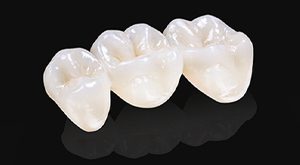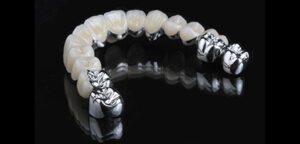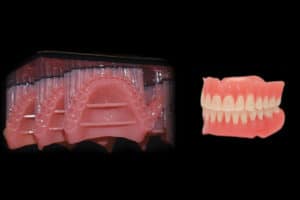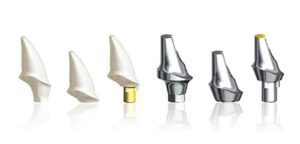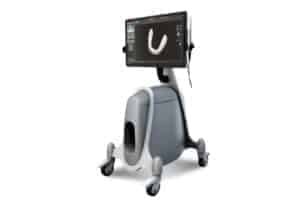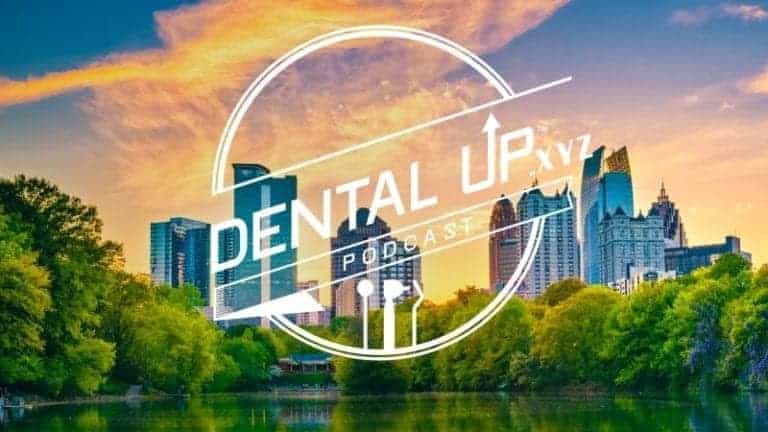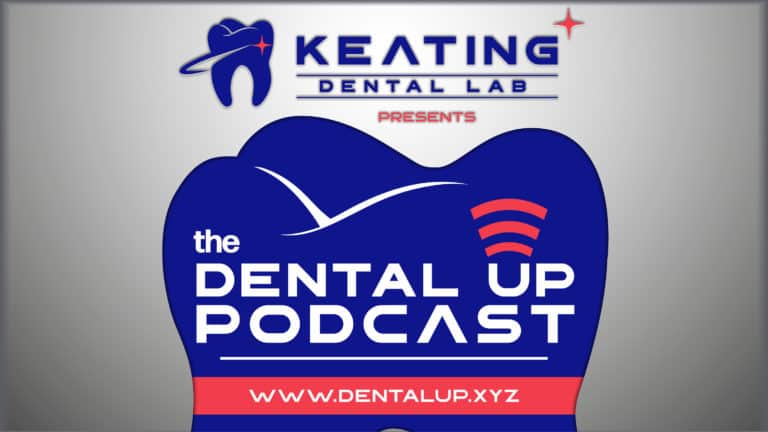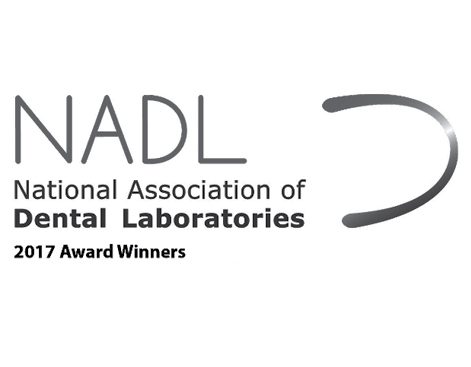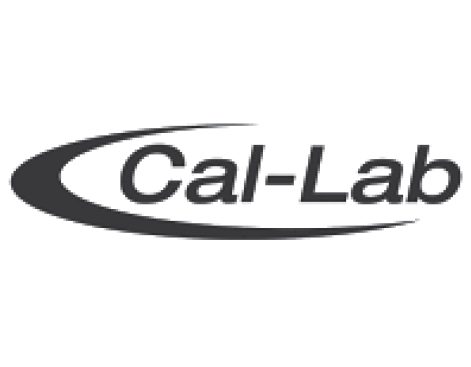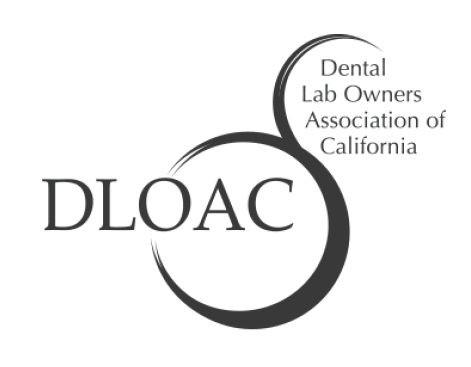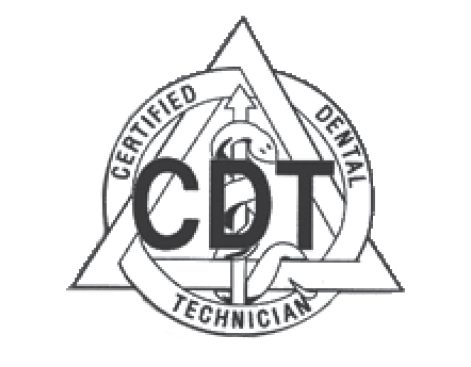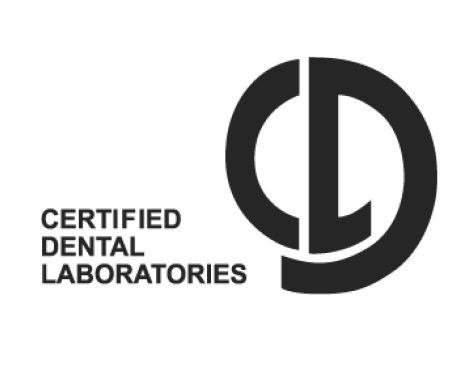| Shaun Keating CDT + Dr. Alan Weinstein DDS |
Earning his Doctorate of Dental Surgery from Emory University School of Dentistry in 1967, Dr. Alan Weinstein has practiced precision dentistry for over 5 decades. With half a century worth of dental experience and knowledge, Alan shares the most important aspects of dentistry and what has worked for him the past 50 years of dental practice. High-quality, textbook care is the goal for all patients undergoing treatment provided by him.
Dr. Weinstein is a Fellow of the American Academy of General Dentistry and the American Academy of Fixed Prosthodontics. He is also on the courtesy staff of Saint Joseph’s Hospital and was a clinical instructor at Emory University School of Dentistry for many years. Alan is a member of the Georgia Dental Association, American Dental Association, Hinman Dental Society, and Omicron Kappa Upsilon Honorary Dental Society.
Sandy Springs Dentistry
Full Transcription:
Shaun: This week, we’ll be featuring a dentist who has practiced for over five decades. Dr. Alan Weinstein earned his Doctorate of Dental Surgery from Emory University School of Dentistry in 1967. Dr. Weinstein is a fellow of the American Academy of General Dentistry, and the American Academy of Fixed Prosthodontics. He is also on the courtesy staff of Saint Joseph’s Hospital and was a clinical instructor at Emory University school of dentistry for many years while he was in private practice in Atlanta, Georgia.
Dr. Weinstein is a member of the Georgia Dental Association, the American Dental Association, the Hinman Dental Society, and the Omacron Kappa Upsilon honorary dental society. High quality textbook care is a goal for all patients undergoing treatment provided by him. Please welcome Dr. Alan Weinstein, practicing all the way in Atlanta Georgia.
Hey, Alan, how’s it going, buddy?
Dr. Weinstein: Okay. We’re all good.
Shaun: Thank you so much, dude. I’ve always loved talking to you, man, because you’re a southern boy. You always tell me how it is from the first time I got on the phone with you. Like, “Shawn, I need it done this way. Don’t give me no talk …” I just love it, dude, man, but I know you’re really busy. I thank you for taking the time and doing this.
I like to start off a little bit with sports starting off. What do you got out there, man? Are you an Atlanta Falcons fan of football, then a Hawks in basketball? You like any of the sports out there? What do you got going?
Dr. Weinstein: Well I don’t follow pro sports as much as I do college. The Georgia Bulldogs are for real. We got us a winner here this year. They’re number five. Watch out. They’ll be number one.
Shaun: I tell you. They do look really good. I’m a big bulldogs fan too, because I’ve had English bulldogs in the past. We had Rocky. I always loved the story back with your Georgia Bulldogs and all that, and through the years with different ones. That’s awesome. They’re a really big college football town out there. You always think of Georgia, too, all the beautiful Southern women, and the Southern hospitality. That’s awesome.
Our USC Trojans, we’re not looking the greatest, but we’ll see, man. I like college football. They play for the right reasons. They play for the love of it. They don’t get paid, so you kind of see a better competitive edge with these college ballplayers, I think. That’s awesome, man.
Let’s dental up here. Let’s talk a little bit about yourself.
Dr. Weinstein: Okay.
Shaun: Now, Dr. Weinstein, why did you get into dentistry? At what point did you think I’m going to be a dentist? Is there anything in your childhood that brought you to the field or anything?
Dr. Weinstein: No, I always liked working with my hands. I was infatuated, when I was a kid, watching local dentists where I grew up in Savannah, Georgia, and found that the field of dentistry suited all my desires perfectly fine, and I’ve never looked back or regretted it.
Shaun: That’s so cool, dude. I mean you are just like a spring chicken too. I see you at the Handyman. You’re like in great shape. Heck, you’ve been doing this 51 years now. Man, I was on mamma’s teat still when you’re starting this. You know us in California, we breastfeed a little later in life. That’s funny, man.
Dr. Weinstein: Well when you get up every morning, and you have the same enthusiasm that you had on the first day when you started, maybe even more, you know you’re still good at what you’re doing. If you ever wake up, and you resent going to work, then it’s time to quit no matter what you’re doing.
Shaun: That’s so awesome. That’s a great attitude. What are you really passionate about in dentistry? What’s your passion? Do you like doing root canals? Do you like to do full rehabs? I know you do everything. You’re just like the McGyver.
Dr. Weinstein: Well I do mostly fixed prosthetics, implants. I do some general dentistry also, but I do fixed prosthetics, the restoration, the prosthetics on the implants. I don’t do the surgical placement of them. I don’t do any endo. I work closely with most of the specialists that I need to in the field, endodontists, periodontist, oral surgeon, and orthodontists. I think that’s the way to go. It gives you the ability to work closely with the best that you can perceive. You all work together. You get good treatment plans and good end results. You can avoid complications by doing that. That’s the best way to go.
Shaun: That’s awesome. I’ve got a few people that say just that same thing. I do what I do best and let the specialists do what they do. I sleep well at night. I’m not going to tackle this implants. I’m not going to sink them. I’m going to restore them. I’m not going to do these endos. I’m going to send them off to the endodontist. How does that work with you in town with how do you pick your specialists? Is it through lunches and Manhattan cocktails or just in study groups?
Dr. Weinstein: No. I don’t play politics with anybody. Most of the specialists that I have worked with, up until the last few years, have been students of mine that I’ve taught at Emory.
Shaun: Okay.
Dr. Weinstein: I know their qualifications. I sit down initially and have an interview with them to find out what their perception of the dentistry, restorative dentistry, patient welfare, and that’s how I determine who I want to work with. If they have other ambitions besides that, then I don’t work with them. I find somebody else.
Shaun: Yeah. No nonsense. You’ve always been that way, dude. That’s freaking crazy. I mean you bust my balls quite a few times on like I always give you heck, because you actually want me, every case that you sending me, you sent us a lot, man, through the years. I’m very thankful for that. You’re the only dude out of all my dentists that, I might have a couple others here and there that do it, but every case you send me, we poured up, articulated, and sent it back for you to diatrim. It’s like I got the best diatrimers to do this, but you’re like, “Shawn, I know where that margin is. I’m going to do it.” You send it to me-
Dr. Weinstein: Actually you don’t even pour them up. I pour them up, showed you the solid model. Then you mount them and send them back to me. I trim every [DAC 00:07:09].
Shaun: Can you believe that? I pin it-
Dr. Weinstein: Every DAC.
Shaun: That’s so cool, dude. We’ve never freaking had a remake, I don’t think ever, in the years we’ve-
Dr. Weinstein: No, I don’t think so. Now I don’t mind if it was a remake, it’s because you screwed up. Not me.
Shaun: Well that was very rare, but we caught a couple through the years, my man. That’s so funny.
Dr. Weinstein: But if you’re going to provide precision care, that’s what you go to do. The patient is paying you for precision services. You have an obligation to provide that. In today’s environment, unfortunately, I see too many people who capitulate to the dollar and the bottom line rather than the patient’s welfare. It’s a shame.
Shaun: Yeah.
Dr. Weinstein: The young dentists that I see today, I think, get shortchanged by their education. What I would tell young dentists today, you go out into practice, because they think they know everything. They don’t know anything. I could give you an example where I myself have had that attitude when I first got into practice. I remember the first week I was in practice. My father-in-law was also in the practice at that time. I was doing nothing, sitting around, reading journals and stuff, in between going out and trying to introduce myself to the community.
He had a waitress from a restaurant down the street, who came in with a broken lower molar, number 30. He comes and gets me. He introduces me to the patient. He says, “This lady needs a crown. Go ahead and make her a crown.” I examine the lady, take an X-ray, and look at it. She had about a four millimeter pocket on two of the surfaces, didn’t have the greatest of oral hygiene. I came back and said to him, “Dad, she needs gum surgery before you could do a crown.” He says to me, because he had been in practice for many, many years, he says, “Look, the way you prepare teeth when you get a perfect temporary on there, the way you do it, give her two or three weeks. The tissue will heal up. She will have a zero pocket. You’ll take the impression and you’ll finish the crown.” So I said, “Nope. I can’t do that. That’s not going to be right.” He looked at me and he says, “Okay, so sit on your ass, and I’ll go do it.”
He went and prepared the tooth and did a crown. The lady was a patient of mine until she passed away for 40 plus years. Every time she came in, that crown was sitting there with healthy tissue and it was a gold free quarter crown. Every time I saw this lady, when she was in for recall and she’d get dismissed, I’d say to myself, “You dumb schmuck. You didn’t listen, because you didn’t want to learn from experience.”
My example of that to young dentists is learn everything you can. Don’t believe everything you’re told from supply people, even from some of the lectures. The important things are occlusion, knowing how to prepare teeth, get a great relationship with a perfect lab, and know how to communicate and correspond with the lab. Now what you’re talking about so when you want to criticize them, you’re not blowing hot air. You’re talking correct. If you had to drop the hammer on them, you have the ammunition to do that.
The first thing you need to do is set aside about three or four hours a week when you go into practice. You’re going to have plenty of time. Go to a lab that you think is excellent. Spend time in that lab. Talk to the technicians, learn techniques from the bottom up. Also, get some denture models and set teeth. That’s how you’re going to learn occlusion.
Shaun: Okay.
Dr. Weinstein: Mount them and set denture teeth until your fingers are sore. That way, you will know all of the facets of occlusion that you need to know, from balancing interference, center [inaudible 00:11:49], everything. It will give you the ammunition to know how and where you should restore teeth.
Shaun: That’s awesome. That’s nice. That’s great.
Dr. Weinstein: That way you can communicate with the technician on an even playing field. You’re not BS-ing either one of you. You know how to troubleshoot. You know what to do. You expect the same. A good technician will respect that, because they know you know what you’re doing. They appreciate working with somebody who knows what they’re doing and respects their talents in return.
Shaun: Oh absolutely. When I started talking to you, it’s like, “Dude, this guy’s on top of the game, especially he’s pouring, he’s determined. He’s just like …” You know what? And it’s great. You’ve made us better through years. I know Jim [McEckert 00:12:41], one of my mangers, you guys are really tight. I know how much you love him.
Dr. Weinstein: Yup, Jim knows his business.
Shaun: Yeah. He’s been in it. He’s old navy guys. He’s been in it for 50 years also. It’s a blessing to have him here for sure. No nonsense for sure. It’s just about getting it right. You’ve always been about the patient. Let’s get it right and done for the patient.
Dr. Weinstein: You don’t cut corners. Don’t use inferior materials. Don’t use inferior labs. While we’re speaking, I’m writing four Encode [inaudible 00:13:20] on a case for you, and five key process temporaries for lower anterior.
Shaun: Yi-haw!
Dr. Weinstein: That’s just the last two hours of work.
Shaun: Yeah, baby. Look at that. You’re freaking crushing it. Love it.
Dr. Weinstein: You’ll get these cases tomorrow or Friday at the most.
Shaun: Dude, that’s so cool, man. We could use it. We’re a little slow here, man. We’ve got a lot of natural disasters out there. I feel for these guys in Texas and Florida, man. We’ve got-
Dr. Weinstein: How about Vegas? How about Vegas?
Shaun: That’s just unbelievable. My IT manager, my head IT guy, was there. He had to hide on the side of the stage, and bullets are whizzing by. He’s texting me, saying, “Shawn, I can’t make it in the morning. We’re having some issues here. There’s stuff going on.” I just can’t believe he has got … He’s rattled. I mean he’ll never be the same.
Dr. Weinstein: I bet.
Shaun: He’s just so rattled to see all of these PC people with holes in their heads and arms. He said it was just unbelievable and just really scary too to think that the guy wasn’t really off the rails. Maybe he was internally in his mind, but to be below the radar. It just makes you just thankful.
Dr. Weinstein: That’s true.
Shaun: I always say-
Dr. Weinstein: We live in strange times. We’ll get over them eventually.
Shaun: Yeah.
Dr. Weinstein: But the course in between will not be pleasant. It’s just like you might say the same thing for the same reason that you just said, dentistry every day is not going to be a trip to the moon. You’re going to have peaks and valleys. You have to learn how to handle those. There’s never the same month or every year. It will vary from year to year, but you have to learn how to take care of people’s needs. Most people today are strapped for cash. A lot of people are unemployed. You have to help these people out. There are ways of doing it. You can build up big areas with amalgam, explain to the patient that when they’re comfortable, you can come back and do a crown.
Shaun: Yup.
Dr. Weinstein: You can temporize a tooth, particularly in the anterior, so that they’re presentable. You can help the patient out. That’s how you maintain their confidence and their loyalty and their trust, and you build a practice. Those patients will be with you forever.
Shaun: Absolutely.
Dr. Weinstein: That’s how you go about it. The other thing is to have an absolute great practice. The most important things in an office of any kind, particularly in a dental office, is the people you have on your staff. Not the equipment. Obviously, you got to have equipment to produce what your profession demands, but the most important thing about any business is your personnel.
Shaun: Yes.
Dr. Weinstein: I’ve been in practice now, like you said, for over 50 years. I have never fired an employee in 50 years. Now I have had ladies who worked for me who moved away or who got married and quit the field, but I’ve never fired anybody. I’ve got people right now who have been with me … I’ve got a hygienist who’s been with me now for about 45 years. My office manager, who you know, Lynn, has been with me for 30 years.
Shaun: Yeah, Lynn’s great.
Dr. Weinstein: I’ve got an assistant who’s been with me for 15 years. The other staff members have been here for years.
Shaun: That’s awesome.
Dr. Weinstein: That’s indicative of the quality of care you provide. That’s something young people need to understand also. Don’t get yourself sucked into debt. When you get sunk into debt, you make bad decisions. Bad decisions lead to a bad practice. You just spin down and never get out of that well.
Shaun: Nope.
Dr. Weinstein: You know, you can’t do excellent care on discounted reimbursements. You can’t be demanded to do certain things by the insurance companies. You do what you think is best, to the best of your ability. When it is not what you are comfortable with doing, that’s when your specialist comes in to play to help you out.
Shaun: Are you a fee for service? Do you have an insurances or no?
Dr. Weinstein: Yes. Right.
Shaun: Just a total fee for service?
Dr. Weinstein: We are total fee for service as a currency to the patient. We will fill out the insurance forms and send them off for them, but we are totally fee for service.
Shaun: There you go. That’s awesome. It just sounds, because you’ve been there for so long with your staff, I mean, it’s word of mouth I’m sure is your number one thing to get patients in the door. Do you do anything else? Do you do any marketing? Do you do any advertising? Do you do any social media at all to drive patients to the practice or is it strictly like word of mouth?
Dr. Weinstein: I don’t and never have done any of that. Now the best way is to immerse yourself into things about the communities, in your church, in your synagogue, in your kids’ school, you know, organizations. That’s how you sell yourself, by being an honest, participating individual. Anybody years ago, before there was an internet, before there was any of these social media, people used to advertise in the yellow pages.
Shaun: Yeah.
Dr. Weinstein: The social media today is a modern yellow pages. That’s all it is.
Shaun: Yup.
Dr. Weinstein: 98% of anybody you’re going to get, who picks you out of the yellow pages, is not a good patient. They’re not going to pay you. They’re not going to show up on time. They’re going to be a pain in the butt. They need to go to a clinic, where they just stack up the patients, and they take care of you as you come in, or what have you. They’re not for building a practice. I don’t participate in any of that.
Shaun: Good for you.
Dr. Weinstein: It’s sort of like building a perfect practice akin to the tortoise, and the hare cartoon. You know, the hare is out of the gate like a rocket, but at the end of the road, the tortoise finishes first.
Shaun: Absolutely. I always think that in the car, when I’m racing around, trying to get to work. I get in and out of cars. Then at the end of it all, that dude that I passed way back, he’s passing me out. He just kind of looks at me like, “You knuckle head.” Just slow and easy and keep the pace. That’s what I do nowadays. You know, just take your time. Do it right. Be safe.
Dr. Weinstein: That’s it. Do it right and that’s what you do. You know? You just surround yourself with the best of people. You expect that in return. It’s hard to do nowadays, because everybody’s looking for a cheap deal.
Shaun: Yeah.
Dr. Weinstein: They don’t understand that you’re better off using [handover 00:21:30] metal on a crown, all of these things that are persona non grata is really bad news. I don’t use any composites in the posterior teeth. I think it’s the worst restorative material that has come down the pipe. I don’t do any CEREC type crowns. I think they are a bad technique that has been perpetrated on dentistry. If you prepare a tooth correctly, and you can see the margin without packing it off and keeping it dry. The [scanners 00:22:14] not going to see it either. The end result’s going to be just improper. It’s going to fail. The only indications I see for a CEREC crown is if you have a patient come in, and you want an immediate temporary, and you don’t know how to make them great, then the CEREC might do that. That’s an advantage there. As far as a permanent restoration, it is not economical, contrary to what the people who sell the machines and entice you into the software and all the other stuff. It is just not economical, and it’s not a good product.
If I had to say, in my career of dentistry, some of the most outstanding things that had changed the course of dentistry and had changed the prognosis of restorations that are done, implants of course have tremendous advantage. The scanners that you use, that we make zirconium crowns off of, which you can replicate [inaudible 00:23:28], just like you can a [inaudible 00:23:30].
Shaun: Yup.
Dr. Weinstein: That is a tremendous advantage there. Some of the casting techniques, the investment materials, have certainly changed, high speed and pieces, some of the diagnostic equipment, newer and faster X-rays. For the most part, when people poo poo things like amalgam, it’s a great restorative material. We don’t do quite as many gold inlays like MODs and so forth, which we used to do, because the amalgams have gotten better and stronger. Amalgam is probably one of the best restorative materials for an economic restoration for a patient that there is.
Shaun: I bet you got that down too. You’ve done a few amalgams in your time, I’m thinking.
Dr. Weinstein: I would say maybe half a million or more.
Shaun: Isn’t that mercury in there killing them, and messing them all up, giving them a little twitch and sniff, or no?
Dr. Weinstein: Nobody’s turning into a green frog yet, so I don’t think anybody else is going to turn into a green frog. You know, it’s a great restorative material.
Shaun: That’s awesome. That’s what we had when we had our cavities, growing up as a navy brat. It’s like get those amalgams in there. Then in the ’80s, I started my dental career, it’s like, “Oh you got to get those amalgams out.” So then I put all gold in them, and did that for a while for 10 years or so. Then I’m like, “Oh we’ve got to put porcelain in then those things there. What a nightmare.
Dr. Weinstein: How many root canals have you had by changing all the restorations?
Shaun: Almost every one of those molars.
Dr. Weinstein: Yup. See?
Shaun: My brother went into endodontics. He’d say, “Shawn, flying them on out. We’ll do them up.” That’s crazy. Yeah. That’s just amazing how that’s evolved though. I mean when you started 50 years ago, man, I bet you, it’s changed quite a bit, but you’re still practicing the nuts and bolts of dentistry. You know? Bread and butter dentistry.
Dr. Weinstein: Yeah, that doesn’t change. You cannot alter the principles of dentistry. If you do, you get in trouble. Look. You’ve been in the field long enough to know that when implants first came out, you were told that everything had to be splinted, including implants to natural teeth.
Shaun: Yup.
Dr. Weinstein: Well at that point, I was telling people and the oral surgeons, I’m not splinting them, because you’re going to intrude teeth, not the implants. You’re talking about a tooth that functions normally under [inaudible 00:26:21]. Sure enough, I was right. People had failures, because the force of occlusion are generated from the posterior to the interior. If you did a [inaudible 00:26:32] bridge, and the anterior [inaudible 00:26:35] was a tooth and the posterior [inaudible 00:26:37] was an implant, the interior [inaudible 00:26:41] came loose.
Shaun: Yup.
Dr. Weinstein: Because you intruded the tooth.
Shaun: Yup.
Dr. Weinstein: Those things moved on to the point where they said you need to avoid occlusion. Well if you’re going to subject the patient to all these restorative and you’re going to avoid occlusion, why are you doing it? That went by the wayside.
Then you had to splint all the implants. Well you don’t need to splint the implants. The only time you’re going to splint implants is when you don’t have enough bone. Let’s say if you were doing four, five, and six, and you didn’t have enough bone in the five area, but you had it in the four and six area, then you could do a [inaudible 00:27:26] bridge on the implants, i.e. splint it.
Shaun: Yup.
Dr. Weinstein: But if you got individual implants with all the necessary anatomy around it to get good emergence profile, good occlusion, excellent margins, then you don’t need to splint anything.
Shaun: Yup, absolutely.
Dr. Weinstein: I would say, I mean you could look, I’d probably restore … You’d get all of them. I probably do at least 200 [encodes 00:27:58] a year for restorative.
Shaun: You’re crushing it.
Dr. Weinstein: You can’t do much more than that, because you’ve got such an interim healing cycle between the time of implant placement and the finalization of crowns.
Shaun: Absolutely. I even say with some of my guys on the fixed work, you know, let’s not split them if we don’t have to. We have [inaudible 00:28:21] by each other. You have 12 teeth or 14 teeth, and you want it all split. It’s like, “Guys, let’s keep them singles just to cover our butt, because the inter proximals with contacts and everything else, we’re going to keep them from moving, okay? It’s going to be like it’s splinted when you do all your contacts properly and everything else. You don’t need to splint them, because you’re just going to have a can of worms of one or two fail here and there.”
Dr. Weinstein: That’s exactly right. I’ll tell you something else I don’t do. When you send me back the Encode, and you can talk to Steve, that I was the one that designed the platforms of the Encodes, which Encodes now, I think, copy with flat walls and grooves that are all parallel to each other. That gives you good mechanical retention. I never use composite cements. You don’t need to. You get good parallel [inaudible 00:29:17] wallpaper on these things. I use good old fashioned oxyphosphate cement to put them in. Everything is cemented in. It’s not screwed in.
Shaun: No.
Dr. Weinstein: When the cases come back from your lab, what I do is I assemble the Encodes. I place the temporaries on there. I let the tissue heal around the Encodes for two or three weeks before I come back and I take a direct, indirect impression. I’ll pack some [inaudible 00:29:47] around it. I’ll take an impression to expose the [inaudible 00:29:51] margins on the Encodes. That way you don’t tear the tissue. You get an excellent result by doing it individually like that, rather than when the Encode comes back. You’ve got the crown, the permanent crown, you’re not going to get the contacts in the right spot. You’re not going to get the occlusion in the right spot. You’ve incorporated failure from the get go, which you don’t want to do.
Shaun: No, you don’t.
Dr. Weinstein: If you’re going to do this kind of work, you have to have your lab and your office where you can polish … Look. I’ve got three porcelain ovens. We’ve got a big lab here in the office, where we do stonework. We do porcelain work. We polish gold. I don’t do any castings anymore.
Shaun: Thank you.
Dr. Weinstein: Whenever a case comes back for me that is porcelain and I have to adjust it, occlusion wise or contact wise or whatever, I glaze it. It doesn’t get rubber wheeled and put in the mouth. It gets glazed. I mean Jim’s been in the office, so he knows. When he was here, for him, and Jim’s been in the office, so he knows how we are.
Shaun: Oh he knows. He came back. His eyes just gleaned, “Man, Weinstein’s a monster. He’s just crushing his kind of set up so good.” We were talking, some of my management staff yesterday, I was telling them I was having you on. They were saying, you know, you’re probably one of our best, out of our dentists, one of the top practitioners with how you practice dentistry. It’s nuts and bolts, bread and butter dentistry. It’s just no bullshit. You don’t deviate going to different … You do it the same every time. It works.
Dr. Weinstein: That’s exactly right.
Shaun: it’s just something-
Dr. Weinstein: You know, I treat every patient the same. Whether you’re rich or poor, you get the same quality of the end result. I tell you what it’s going to be before I start. If you want something else, fine. I’m not going to get mad at you, but you got to go somewhere else. I’m not going to be a party to pay you. That’s what happens if you do the wrong alternatives.
I had a patient who came in yesterday. This guy I did an upper splint on this guy 45 years ago. It was a 14 unit bridge with interlocks in it. It was in three pieces and it had interlocks in it. That’s what we used way back then.
Shaun: Yeah, [inaudible 00:32:31].
Dr. Weinstein: This guy, his mouth got wrecked. He’s been in Iran and Afghanistan. He just retired from the service. His mouth was just a wreck. He came in and he’s going to need some bridgework on the lower, but the upper is hopeless to help. We’re going to have to do an immediate upper denture for him. You know, I told him, I said, “Look. Go get another opinion. Don’t take what I tell you as the gospel.” He says, “No, I’m not doing that.” He says, “I thought you had retired.” He says, “I’ve been looking for you for a year and a half.”
Shaun: Weistein still crushing it. Man, that’s awesome. We can always sink a couple of implants over canine areas or whatever. Lock and load them.
Dr. Weinstein: You can’t do it. He don’t got any bone left in the anterior.
Shaun: We pull it off a cow’s ass or whatever. How do we do that? Man, we’ll just graft it.
Dr. Weinstein: Nah. To do this tooth in a day stuff where you’re going to put agromatic implants, that’s not going to work.
Shaun: I got a few guys that are in pokey trying to stick those little mini implants. I’m all doing this for you. They’re all failing and just popping them in like a freaking stapler. It’s like, “Dude. That is so just not right.”
Dr. Weinstein: That’s exactly right.
Shaun: They’re calling you into practice. You’ve got more teeth to do.
Dr. Weinstein: Yup.
Shaun: That’s funny. Well, dude, man, that is just so cool. I mean, I just really respect your talent. You know, I just thank you for all the work. How did you ever find out about us? Did you see us somewhere? How did we cross paths to where you sent me-
Dr. Weinstein: I mean you have to look back on your records. I think I started working with you right when you opened your place. I thought that I might’ve come in contact with you from seeing an ad in a magazine or something. Just as a secondary lab, because at the time, the lab I had been using here, the guy was going to retire. He was in the process of closing his lab. I started sending you a few cases, and you know, the materials were as I requested. The end results was as I requested. Nothing was altered from there since.
Shaun: That’s so cool, dude. Well we love it with you, because you know what, you send us good stuff. We send it back. It goes on the mouth. It’s just a great thing. It’s just such a consistent beautiful dental practice. We love working with guys like you. I wish I can clone you. I don’t know how many times in the year I’ve told that … I wish I can clone you, Alan, you know, because you just really got it. It’s a great thing.
Dr. Weinstein: Well the unfortunate thing is that too many of the younger doctors are not that way and are not going to be that way. Even if they start off with good ambitions, and they get exposed to having worked in these denture mills or these insurance mills. It just burns them out. It turns the good doctor into a bad doctor. It gives them a bad taste in their mouth as to what happens and what doesn’t happen. It’s a sad situation. Sometimes I think because of that dentistry is going backwards and not forwards. Everybody’s going to have to work together as far as the labs and doctors to keep your fees down, and work on the patients who really want good end results. There’s such a scarcity of good technicians, that you’re never going to replace an excellent technician with any kind of machine.
Shaun: Yeah.
Dr. Weinstein: It’s just not going to happen. If it does, you’re going to get the results, or just like what I said, where [inaudible 00:36:51]. Yeah, you’re going to get an end product, but it’s going to stink.
Shaun: All those guys that are out there listening are going, “Wait. I do it good.” You know, it’s-
Dr. Weinstein: Yeah. There’s full of shit as a Christmas turkey.
Shaun: Oh Alan, I love you, man.
Dr. Weinstein: You know?
Shaun: Full of shit as a Christmas turkey. I never heard that one.
Dr. Weinstein: Yeah. I heard a good joke a patient told me this morning. This was terrific. He said, “You know, the cops in Chicago are changing their sirens. They’re playing the national anthem, because that way, when they come flying down the street, everybody drops to a knee.”
Shaun: Oh jeez. Oh lordy lordy. That’s funny. Well hey, man. Tell me real quick about your practice now. Have you had that same practice all your career? Did you start it this way?
Dr. Weinstein: Yup.
Shaun: No kidding. Same one huh?
Dr. Weinstein: Nope. Nope. We moved locations from where we were originally. We were originally downtown in Atlanta. Now we are … We’ve been here since 1978.
Shaun: Okay.
Dr. Weinstein: The Saint Joseph’s Hospital moved from downtown to Sandy Springs, which is a suburb on the north end of metro Atlanta. We’re in the medical complex. There’s about 600 physicians and about 5 doctor’s buildings in the hospital. The hospital now is joined with Emory University, so it’s Emory Saint Joseph’s. You know, we see lots of interesting patients, international patients. We see lots of sick patients, who are undergoing chemo and so forth. It’s a very, very interesting practice.
I’ve still got a few patients who are patients of my father-in-law when he started practicing. These people are 95, 96 years old, 97. They were little kids when he first started treating them. I don’t think there are many practices in the country who can say that they’ve had patients in their practice 90 plus years. That spans several generations. That’s how old the practice is. That’s how loyal the practice is. That’s what the reputation of the practice is.
Shaun: That’s awesome.
Dr. Weinstein: Of course Dr. Benefield joined me eight years ago. She’s terrific. She’s wonderful, has a lust for learning, and has great hands, great technique, and great people skills. It makes it fun to come to work everyday.
Shaun: Yeah, she’s an awesome dentist too, dude. I know you’ve been through a few. I remember way back, you had one of the hotshots out of the dental school.
Dr. Weinstein: Yeah, he was a legend in his own mind.
Shaun: Yeah, you remember it didn’t work out. It’s like-
Dr. Weinstein: Right.
Shaun: I think I got that from you. He wanted a job, but he just didn’t want to work, or something. He wanted to-
Dr. Weinstein: That’s right. That’s exactly right.
Shaun: Dr. Benefield, now she’s crushing it too. We’ll have to get her on for a podcast in the future for sure.
Dr. Weinstein: Okay. She’d love that.
Shaun: Yeah, well before we sign off. What kind of advice can you give some of the new guys starting off, do’s and don’ts. We’ll wrap this up. A lot of my younger guys, I think you gave them some good tips.
Dr. Weinstein: What I would do, if you’re going into practice individually, don’t get yourself in an insurmountable amount of debt. Start off small. Buy yourself used equipment that is good and functional. You don’t have to have all the bells and whistles to start with. Make sure you keep up your educational, listen to lectures and everything. Don’t buy everything that a salesman comes along. Find a mentor who you can trust, who you can ask honestly when you get into problems, or you have cases that you’re not quite sure as to how it should be treated. Find yourself a good lab. Also, like I said, go to a lab and learn how to do things correctly.
Shaun: That’s great advice.
Dr. Weinstein: The best way to learn is from other people’s mistakes. You will see those mistakes in the lab.
Shaun: Yes.
Dr. Weinstein: That’s what you do.
Shaun: That’s awesome.
Dr. Weinstein: You know, you build and build and build. You’ll have a wonderful career. You’ll enjoy what you do. You’ll leave behind a good legacy when you’re gone.
Shaun: Yes, sir. I know you are. You’re an awesome dentist. You’re a great person. I thank you so much for coming on this podcast and speaking words of wisdom to our audience. We love what you said. I just can’t thank you enough for all the work. I know you’ve got patients, so I’m going to let you go, Dr. Weinstein.
Dr. Weinstein: Yup, I’m going to get your lab stuff ready, so the UPS guy can get it to you tomorrow.
Shaun: Oh you’re the man, dude. Thank you so much. I appreciate you, Dr. Weinstein. Have a great day. Thanks again for coming on our podcast. We’ll talk to you real soon.
Dr. Weinstein: Okay, buddy. Thank you.
Shaun: Bye-bye.
Dr. Weinstein: Bye-bye.

